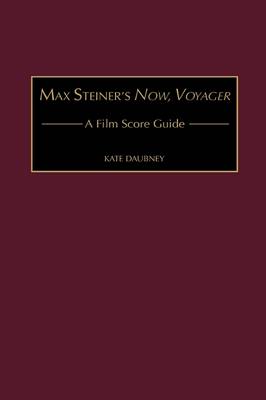Max Steiner's contribution to the formulation of early Hollywood scoring techniques is significant, particularly through his music for King Kong (1933) and The Informer (1935). The Academy Award winning score for Now, Voyager reflects the maturation of the composer's understanding of the dramatic function of music in film. The primary resources incorporated in the analysis include, from the Max Steiner collection at Brigham Young University, Steiner's letters and scrapbooks and his unpublished autobiography Notes to You. In addition to contributing to the composer's own perspective on the music for this film and on scoring practice in general, these papers contribute to a broader debate about how films are interpreted and the part music plays in these schemes of criticism. This study of the film score occurs within the broader theoretical and historical debates currently characterizing film musicology and explores, from varied perspectives, how the score is meaningful and important to the film.
Devoted to a single score, this study brings together for analysis all the contingent factors in the score's creation, use, and reception and will appeal to film music scholars and to scholars of music and of film. The scope of the analysis will also interest scholars involved in music in multi-disciplinary art forms, feminist musicologists and film scholars, and students of musical theater. Separate chapters discuss Steiner's musical background, his technique of film scoring, historical and critical contexts of the film, the music and its context, and an analysis of the score. Musical examples illustrate the text and an appendix of selected film scores by Steiner is included along with a selected bibliography.
- ISBN10 0313312532
- ISBN13 9780313312533
- Publish Date 30 July 2000
- Publish Status Active
- Publish Country US
- Imprint Greenwood Press
- Format Hardcover
- Pages 136
- Language English
